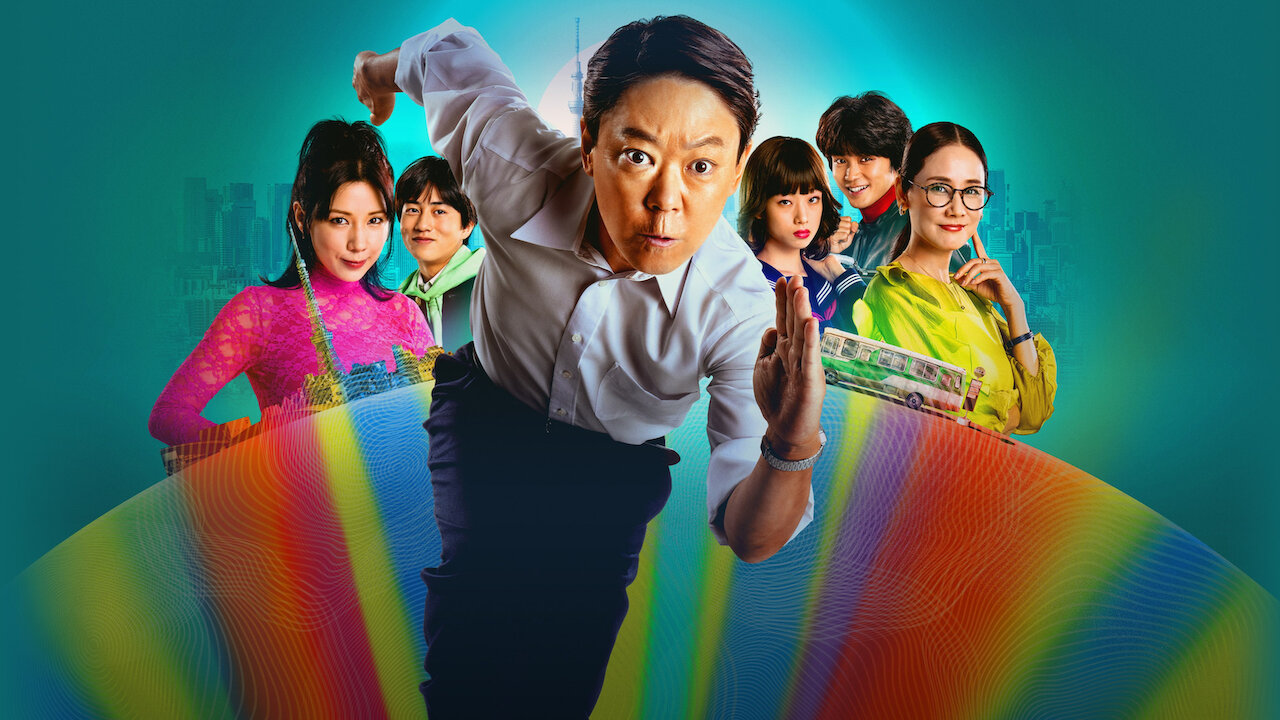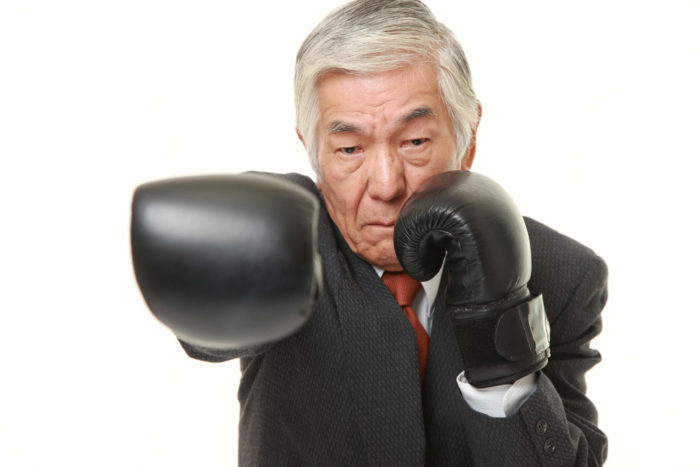
I thoroughly recommend Extremely Inappropriate! (不適切にもほどがある! Futekisetsu ni mo Hodo ga Aru!) a Tokyo Broadcasting System TV series which is being shown on Netflix. It’s an amusing crash course in how Japan has changed as a society from 1986 to 2024 and an insight into how struggles over diversity and inclusion are playing out in the Japanese workplace, in ways that many will recognise.
Each episode has a particular theme – such as power harassment (what would be called workplace bullying in English speaking cultures), women in the workplace and sexual harassment.
The overall plot is very high concept, involving time travel via a toilet wall and a local bus, as well as various family and romantic connections which are slowly revealed. Each episode ends with a musical number, surprisingly good and quite moving in some cases, where true feelings are revealed.
For those who can speak Japanese, an added bonus is the excellent job the translators have done on the subtitles, showing they really understand both the Japanese and English equivalents of the kind of jargon and slang used, in workplaces 38 years ago and now.
To give you a flavour, here’s my synopsis of the first episode
Synopsis
Our hero (or maybe antihero) is Ogawa Ichiro, a middle aged high school baseball coach living in 1986 with his 17 year old daughter Junko. Since Ogawa’s wife, Junko’s mother, died of an illness, Junko has gone off the rails somewhat – she claims mainly to distract her father from his grief. He is known as Ogawa from hell at school, for his habit of yelling at the baseball team and whacking them all on their behinds with a baseball bat.
Falling asleep on the back of an empty bus one day (smoking, of course), he wakes up to find himself in 2024. The key scene below, is when he is sitting in a restaurant, struggling with the robot waiter who is trying to bring him hundreds of plates of broiled fish that he has inadvertently ordered. On the table next to him are Akitsu, a young manager and his bosses, one female, one older male.
It turns out they are trying to rehearse Akitsu for a meeting with HR the next day, about a power harassment complaint brought against him by a female team member, Kaga.
Episode 1 key scene
Kaga has had a mental breakdown and has taken a month off work. Her complaints are outlined by the bosses, starting with “He put pressure on me before a presentation.”
Akitsu: I said “I expect a lot from you (kitai shitemasu) so work hard (gambatte ne)“ I can’t even offer encouragement?”
Female boss “It can cause some people to have a breakdown”
Male boss “ Just say it was a thoughtless remark”
When Kaga was taking notes in a meeting on her smartphone, Akitsu praises her speed with “leave it to Gen Z!” (sasuga)
Akitsu: “So I can’t praise?”
Female boss “Labelling someone based on their generation is age harassment”
A claim of sexual harassment – Akitsu was at a BBQ with the largely female sales department. Kaga offered him food. He says “Any guy that gets you as a wife is lucky (shiawase)”
Female boss: This sounded as if he was labelling the other women as inconsiderate because they didn’t offer him food.
Akitsu: “That was not my intent”
Female boss: “It doesn’t matter – even compliments need to be given with caution. If it made the other person uncomfortable, it’s harassment.”
Ogawa starts to get involved at this point, asking “what era is this?”
Female boss “it’s the era of diversity” “having a happy life is not just about getting married”
Ogawa asks what Akitsu should have done.
“He shouldn’t have said anything” “He should have silently watched and then complimented her in a way that didn’t make her feel pressured. He should never criticize a mistake. If he had empathised with her and helped identify the cause of the mistake, she wouldn’t have had a breakdown.”
Ogawa says that’s why the economy is bad and part time wages are still the same they were in 1986.
“This not what we worked so hard for.” “You have expectations of people, and you meet their expectations. You receive criticism and encouragement and you work hard. That’s how you become stronger. That’s the essence of being human.”
Male boss “That idea is outdated”
Ogawa: “If receiving encouragement gets you down, you won’t last long anyway”
Female boss “That kind of remark is exactly what’s problematic (mazui) right now!”
Ogawa: “Isn’t that kind of yelling hysterically to close down an argument some kind of harassment?”
Akitsu: “what would you do?” Ogawa “spank em with a baseball bat if they make a mistake, toss them in the air if they do well.”
Akitsu: “I like that”
Female boss tries to leave
The musical ending
Then Akitsu starts to sing “Let’s have a conversation even if we can’t understand each other”
He sings that it’s his seventh year in the company and he gets no support from above, beneath him are eggshells.
He’s reached the limit of his mental health.
The female boss agrees, but says any justice if brandished turns into a weapon “what’s right isn’t always right”
The whole restaurant stand up to sing and dance the chorus – “broiled shime saba (fish)”
Male boss “that’s organisations for you” “So don’t assert yourself or have expectations”
Female boss sings that it’s her 13th year in the company – “my mental health is long gone.”
Ogawa suggests to Akitsu that it’s better to have a fist fight instead and that he was happy to marry his wife, the birth of his daughter was the happiest day of his life. What’s wrong with saying that? A society where you can’t express your happiness – isn’t something wrong with that?”
Female boss: “that’s diversity for you. A society that embraces diverse perspectives”
Ogawa: “so accept my perspective too – and let me declare my happiness. That’s real diversity”
Then Kaga appears and apologises. “I wanted you to scold me. You were known for being strict to other employees. But you just said gambatte (work hard) and kitai shiteru (I expect a lot from you) to me and other ambiguous things. So I thought you didn’t see me as a part of the team from the start.”
Akitsu “that’s not true”
Kaga sings “because I am a woman, I thought you had given up on me”
Akitsu: “It’s not true. It’s because you’re outstanding (yuushuu)”
Kaga: “I’ve never been scolded, by my teachers or my parents”
Male boss – “if we scolded you, we’d be accused of power harassment. We’re too scared to scold anyone” “That’s organisations for you.”
Kaga: “but I want to be scolded – by Akitsu”
Akitsu – “There’s nothing to scold you about. You’re fine as you are”
Kaga – “I’m sorry, I may have just wanted your attention”
Akitsu “that’s hard to know unless you tell me”
My conclusion from this is the chorus of the song (not the broiled fish part) – rather “let’s have a conversation” is the key – people want to be heard and they want feedback but everyone is too scared to speak out. As a similarly indirect British person, I see both my compatriots and Japanese unable to speak directly and clearly, misinterpreting the hints of others, and the trouble it gets us all into.
We address issues around direct and indirect communication, giving feedback and avoiding harassment, as well as leadership and management skills in our coaching and seminars.
Related articles
The different meanings of psychological safety in Japan, Europe and North America
The concept of “psychological safety” in the workplace started in the United States in the 1960s and
Japanese employees see promotion to manager as a “punishment game”
Nikkei Business magazine has just run a series on how Japanese employees are becoming very reluctant
Clever talk, limited accomplishment
Those knowledgeable about British politics will be horrified to know, as I was on reading this artic





